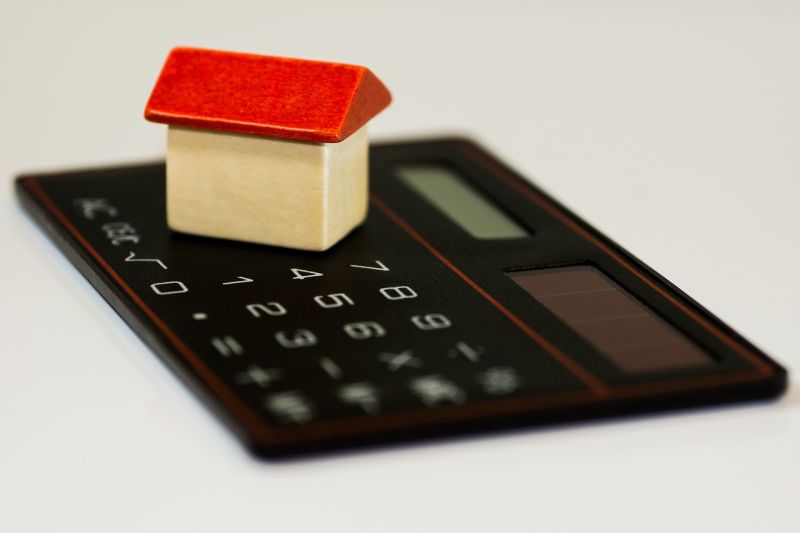14
May 2024
Why are home insurance costs rising? These are the hidden causes you might be unaware of
The average cost of home insurance has risen by over a third (36%) in the last 12 months to October 2023, according to the latest Consumer Intelligence data. This is down to inflation mainly – as is the case with many other industries. Home insurance providers are finding repairs and labourers generally more expensive, and are passing these extra costs onto consumers in the form of price increases.
Here are some of the other reasons why your home insurance premiums are increasing:
Climate change
A rise in extreme weather events, like flooding and damage to homes from storms, for example, can have a significant impact on insurance premiums and the excess that consumers have to pay when making a claim. Insurance premiums are determined by assessing risk, and extreme weather events can increase the frequency and severity of claims, which in turn has an effect on the cost of providing coverage.
Size of your home
The size of your property has an impact on the cost of home insurance. Larger homes will naturally cost more to fix or rebuild if damaged, so are typically more expensive to insure than smaller homes. If you have a large family that has since moved out, and you no longer need the additional rooms, it may be worth downsizing to reduce the cost of your home insurance.
The area you live in
If your area has high crime rates or if you live in an area known for flooding regularly, then your insurance provider may see you as more likely to make a claim. This in turn increases your premiums and means that you may struggle to find one at a good price. If your area is particularly high risk when it comes to flooding, you may need to find a provider which offers specific insurance for areas with a high flood risk. An increase in people making claims in your area could also have an impact on your own premiums too.
Home improvements that could cause issues
If you’ve renovated your home recently, it’s worth noting that the type of materials used could have an impact on the cost of home insurance, particularly if they’re hard to find or require specialist tradespeople to repair. This is because it would naturally cost more for labourers to source the supplies or cost more to get a specialist in to do the repairs. It’s worth bearing in mind what you use and how you update your home before making any changes to see how it could impact your premiums.
The value of your contents
If you have a lot of expensive items that you need to insure, this will typically increase your premiums. These costs will increase if you need to insure these items separately due to their value.
Optional extras
If you look at adding additional optional extras to your home insurance policy, like accidental damage cover or personal possessions cover, you will definitely see a rise in the cost of insurance as you’re getting more cover than the basic offering. Try looking at combined cover to see if this will bring your costs down, as it’s usually cheaper than taking out separate policies with different providers.
As the cost of living crisis continues to affect millions around the country, many people will be looking at ways to save money. Luckily, there are a number of options that may help you reduce the costs and obtain a much better deal. Here are eight ways that you can get the best deal and help reduce your home insurance premiums:
- Use a price comparison site - When it comes to choosing a new policy when you’re due to renew, you should always use a price comparison site to compare rates from multiple providers to find the best deal. Not only will it save you time but it can help save up to £165* and offer a wider range of providers. We can help you compare deals from over 50 of the UK’s top providers. Simply input your details and the comparison site does the rest, scouring a number of home insurance companies to find the best deal for your needs. If you find one cheaper than your current provider is offering, you could always call them up first and see whether they can match it or offer you something better.
- Build up your no claims bonus - You will generally be offered a no claims discount if you go without claiming for several years, so it’s worth making sure you only put in a claim on your home insurance when it’s absolutely necessary. Otherwise, you’ll be increasing the costs upon renewal.
- Pay upfront rather than monthly - Choosing to pay for your home insurance premiums monthly by direct debit can make life easier by breaking the cost up into manageable chunks over the course of a year. However, insurers charge more for this option as you’re opted into a credit agreement, paying interest on top of the annual premium.If you can, it’s worth paying for your insurance upfront to get the very best deal and avoid paying interest or admin fees. If you’re unable to pay upfront, you could also consider signing up for a 0% credit card and make smaller monthly payments until it’s paid off instead to avoid the additional charges from your insurance providers.
- Bundle your policies - Do you have other policies with any insurance providers for a pet or your car, for example? If so, it might be worth calling them up and seeing whether you could save money by bundling your insurance policies with the same provider. Many insurers offer discounts for having multiple policies with them.
- Improve security - If you invest in some high-security locks on your doors or windows, install burglar alarms or set up security cameras around your home, this could make your home insurance cheaper. This is because you’re less likely to be targeted by burglars, resulting in home insurance providers seeing you as less of a risk. Make sure to let your insurer know if you do install any of these features.
- Avoid leaving your home empty - Try to avoid leaving your home unoccupied as much as possible, if you can. Empty homes run the risk of being targeted by burglars or can be damaged by fire or water from any accidents. It’s worth ensuring you have security in place for when you do leave it empty, as well as making sure any electrical sockets are switched off and all taps are definitely off.
- Check for loyalty discounts - If you don’t ask, you don’t get. If you’ve been a customer for a long time or have other policies with your provider, you may be eligible for discounts or money off vouchers, so it’s always worth double checking. Some organisations also offer discounts if you’re part of a specific organisation like the NHS.
- Review your coverage - It pays to review your policies regularly, particularly when they’re due for renewal, to ensure that they align with your current needs. You might find that certain types or optional extras are no longer necessary, and adjusting these may reduce costs.
*51% of consumers could save £165.27 on their Home Building & Contents Insurance. The saving was calculated by comparing the cheapest price found with the average of the next seven cheapest prices quoted by insurance providers on Seopa Ltd’s insurance comparison website. This is based on representative cost savings from September 2023. The savings you could achieve are dependent on your individual circumstances.





